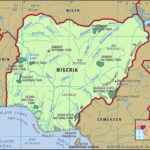The story of baseball’s creation often begins with a charming tale: a young man named Abner Doubleday, in the quaint town of Cooperstown, New York, inventing the game during the summer of 1839. This narrative paints Doubleday as a sporting visionary who later became a Civil War hero, while baseball blossomed into America’s beloved national pastime.
However, this widely circulated origin story is far from the truth. Baseball’s actual history stretches back much further, with roots tracing back to at least the 18th century.
The Abner Doubleday Myth Debunked
Abner Doubleday, born into a prominent New York family in 1819, was indeed a real person. However, in 1839, the year he supposedly invented baseball, Doubleday was a cadet at West Point Military Academy. Throughout his life, including his distinguished service as a Union major general in the American Civil War, Doubleday never once claimed any connection to the invention of baseball. He later pursued law and writing, further distancing himself from the sporting myth attributed to him.
The fabrication of the Doubleday story emerged in 1907, long after his death in 1893. A special commission, spearheaded by sporting goods entrepreneur and former major league player A.J. Spalding, was convened to investigate baseball’s origins. The commission’s objective was somewhat biased: to prove baseball was a uniquely American invention, not derived from British games. Relying on flimsy testimony—primarily the unsubstantiated claims of mining engineer Abner Graves, who vaguely recalled attending school with Doubleday—the commission manufactured the Cooperstown myth. Despite the lack of credible evidence, this narrative surprisingly endured.
Capitalizing on the myth’s appeal, Cooperstown’s business community and major league baseball officials solidified the Doubleday legend in the 1930s. They strategically established the National Baseball Hall of Fame and Museum in Cooperstown, forever linking the town to this fabricated origin story.
Baseball’s Authentic Ancestry: Tracing Back to 18th Century Roots
The genuine history of baseball is significantly more intricate and fascinating than the convenient Doubleday myth. Evidence suggests games resembling baseball were played in the United States as early as the 18th century. Its most direct predecessors are believed to be two popular English games: rounders, a children’s game brought to New England by early colonists, and cricket, a more formalized bat-and-ball game.
By the time of the American Revolution, variations of these games were widely enjoyed in schoolyards and college campuses across the burgeoning nation. Their popularity surged further in the rapidly industrializing cities of the mid-19th century, providing a source of recreation and community for men seeking work in these urban centers.
Alexander Cartwright and the Dawn of Modern Baseball
A pivotal moment in baseball’s evolution occurred in September 1845 when a group of New York City enthusiasts established the New York Knickerbocker Baseball Club. Among them was Alexander Joy Cartwright, a volunteer firefighter and bank clerk, who played a crucial role in shaping the game we know today. Cartwright codified a new set of rules that became the blueprint for modern baseball. His innovations included establishing a diamond-shaped infield, defining foul lines, and implementing the three-strike rule. Crucially, he also eliminated the dangerous practice of tagging runners by throwing the ball directly at them.
Cartwright’s rule changes injected pace and strategy into the evolving pastime, distinctly differentiating it from older games like cricket and rounders. In 1846, the Knickerbockers played what is considered the first official baseball game against a team of cricket players. This landmark event marked the beginning of a uniquely American sporting tradition, one that had organically evolved from earlier bat-and-ball games, shaped by both British influences and American ingenuity, far removed from the myth of a singular inventor in a single summer.
In Conclusion
While the Abner Doubleday story offers a simple and appealing origin for baseball, the reality is far more nuanced and historically rich. Baseball did not spring from the mind of one individual in 1839. Instead, its origins are rooted in a gradual evolution from earlier games, particularly English rounders and cricket, adapted and refined over time in the United States. The contributions of figures like Alexander Cartwright and the formation of clubs like the New York Knickerbockers were instrumental in solidifying the rules and popularizing the game, paving the way for baseball to become the national pastime cherished today. The true story of where baseball originated is a testament to cultural exchange, adaptation, and the collective development of a sport that has captured the hearts of generations.

